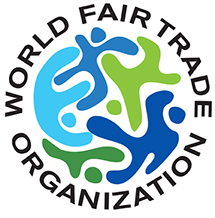We empower economically disadvantaged producers by providing fair, stable work opportunities and ensuring their products are valued in the global marketplace.
Achievements of Gospel House Handicrafts
1. Creating Opportunities for Economically Disadvantaged Producers
2. Transparency and Accountability
We maintain transparency in all our operations, ensuring accountability in every aspect of our business to build trust with our partners, workers, and customers.
3. Fair Trading Practices
We uphold fair trading practices, promoting mutual respect and ensuring that all partners are treated ethically, fostering long-term, sustainable relationships.
4. Payment of a Fair Price
We ensure producers receive a fair price for their products, which covers their costs of production and provides a living wage, supporting their communities' development.
5. Ensuring No Child Labor and Forced Labor
We are committed to eliminating child labor and forced labor, ensuring that all workers are treated fairly and work in safe, voluntary conditions.



6. Commitment to Non-Discrimination, Gender Equity, and Women’s Economic Empowerment and Freedom of Association
We promote non-discrimination and gender equity, empowering women and ensuring freedom of association for all workers, fostering inclusive and equal opportunities.
7. Ensuring Good Working Conditions
We ensure safe, healthy, and fair working conditions for all our workers, creating an environment that supports their well-being and personal growth.
8. Providing Capacity Building
We invest in training and capacity building, helping producers develop new skills, improve their production processes, and enhance their ability to compete in the global market.
9. Promoting Fair Trade
As advocates of fair trade, we support ethical business practices that benefit both producers and consumers, ensuring that the trade relationship is rooted in fairness and mutual respect.
10. Respect for the Environment
We prioritize environmental sustainability by using eco-friendly materials, minimizing waste, and adopting responsible production methods that preserve natural resources for future generations.

